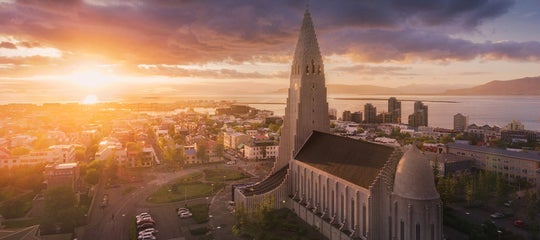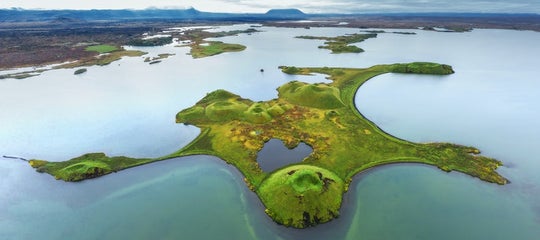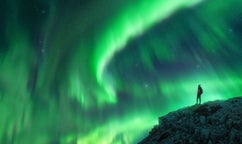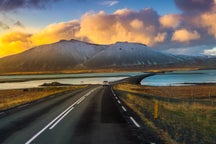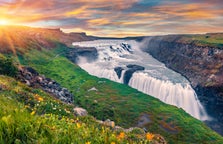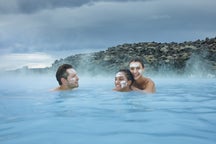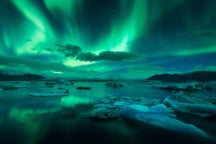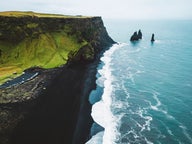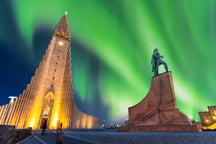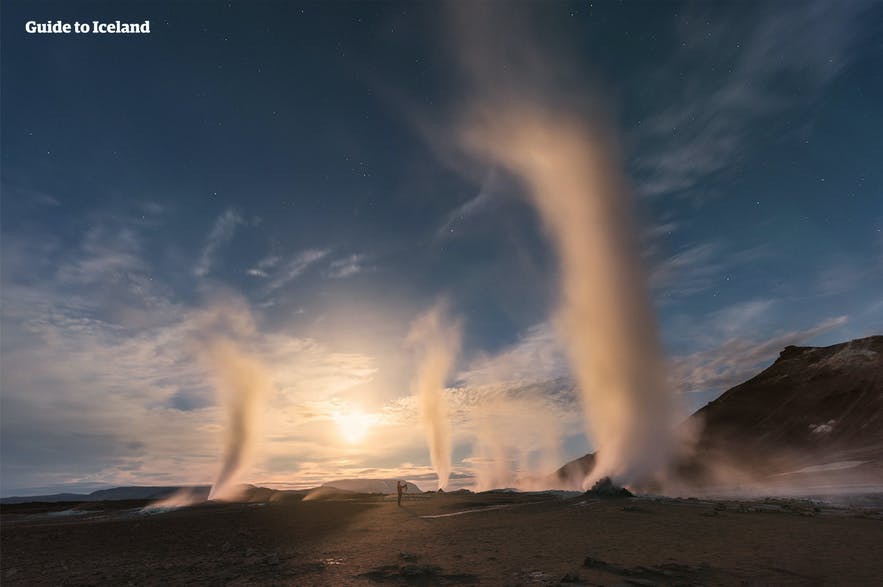
Discover the magic of North Iceland with these 15 hidden destinations. Head off the beaten path and see incredible nature, unique spots, and cultural locations that most miss out on when exploring Iceland!
North Iceland is a region of great beauty and diverse landscapes, known for its dramatic fjords, incredible waterfalls, charming towns, and beautiful nature shaped by the island's volcanic forces. There are plenty of iconic must-visit locations to see during a visit, but there are also many more hidden destinations that are well worth taking time to explore.
Why You Can Trust Our Content
Guide to Iceland is the most trusted travel platform in Iceland, helping millions of visitors each year. All our content is written and reviewed by local experts who are deeply familiar with Iceland. You can count on us for accurate, up-to-date, and trustworthy travel advice.
Traveling around North Iceland is best done with self-drive tours in summer, as you can easily chart your course through the landscapes with a rental car, uncovering sites that many travelers overlook. There are plenty of great accommodations in North Iceland for a comfortable stay, though renting a campervan can also be a fun way to explore freely in a more affordable way.
Including these more hidden places in your journey is sure to make for an unforgettable trip. So pack your bags, put on your walking shoes, and get ready for a unique adventure in North Iceland!
- Discover the 11 Must-See Destinations in North Iceland
- See also: Akureyri, the Capital of North | Culture, History and Activities
15 Hidden Destinations in North Iceland
Plan incredible summer self-drive tours around North Iceland with these unique locations. They're very diverse and appeal to different travelers and itineraries. Read on for the 15 hidden destinations in North Iceland!
15. Light vs Dark in Raufarhofn
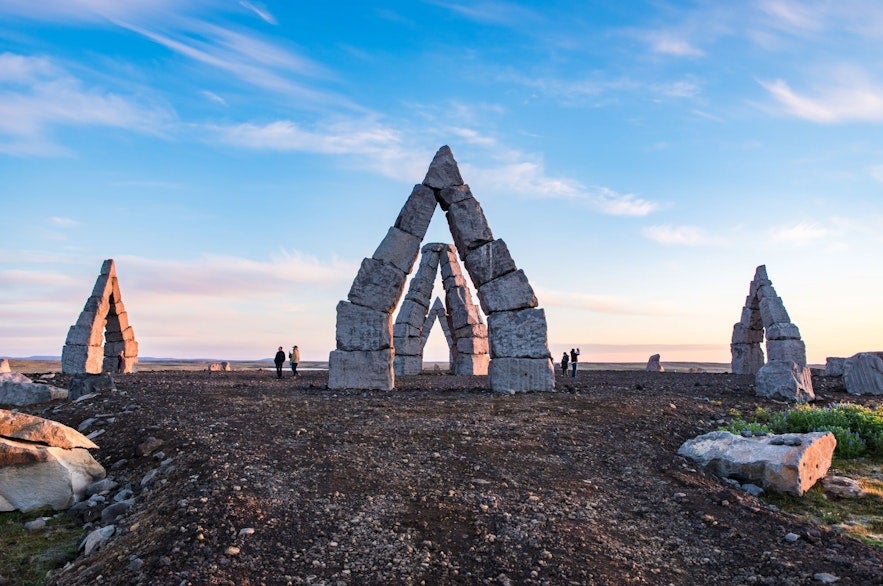 The tiny remote town of Raufarhofn is a worthy stop for its modern Arctic Henge, known in Icelandic as "Heimskautsgerðið." It's inspired by Norse mythology, and this artistic structure plays with natural light to act as a giant sundial.
The tiny remote town of Raufarhofn is a worthy stop for its modern Arctic Henge, known in Icelandic as "Heimskautsgerðið." It's inspired by Norse mythology, and this artistic structure plays with natural light to act as a giant sundial.
The four triangular "gates" are named after the dwarves from the epic Norse poem Völuspá, which describes the creation of the world and the impending "ragnarök," the end of everything. The names are Austri (east), Vestri (west), Norðri (north), and Suðri (south), named after the four dwarves that hold up the sky.
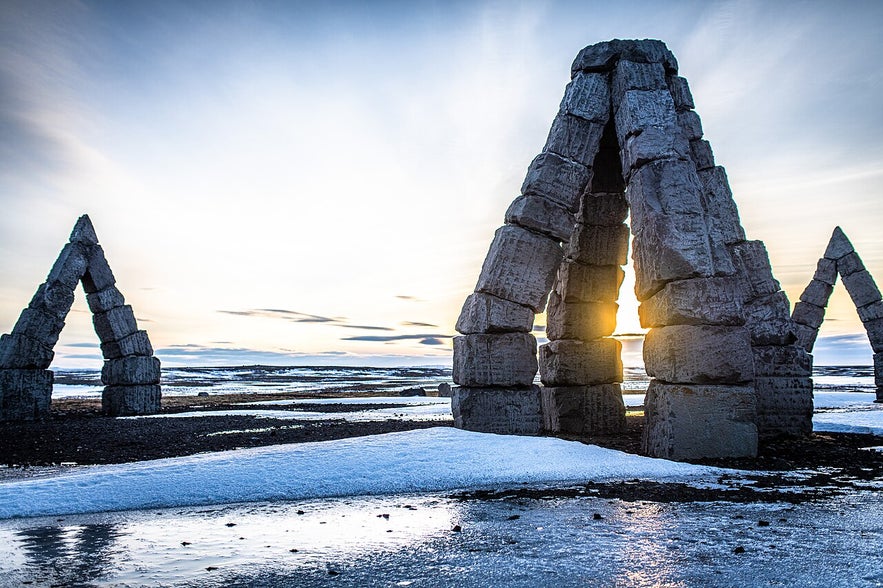
Photo from Creative Commons, Wikimedia, by Erik Cooper.
The Arctic Henge project started in the late 1990s and is still ongoing, with plans for expansion and more structures in the coming years. It's a very nice place for photographs, especially for capturing the northern lights!
14. The Mythical Asbyrgi Canyon
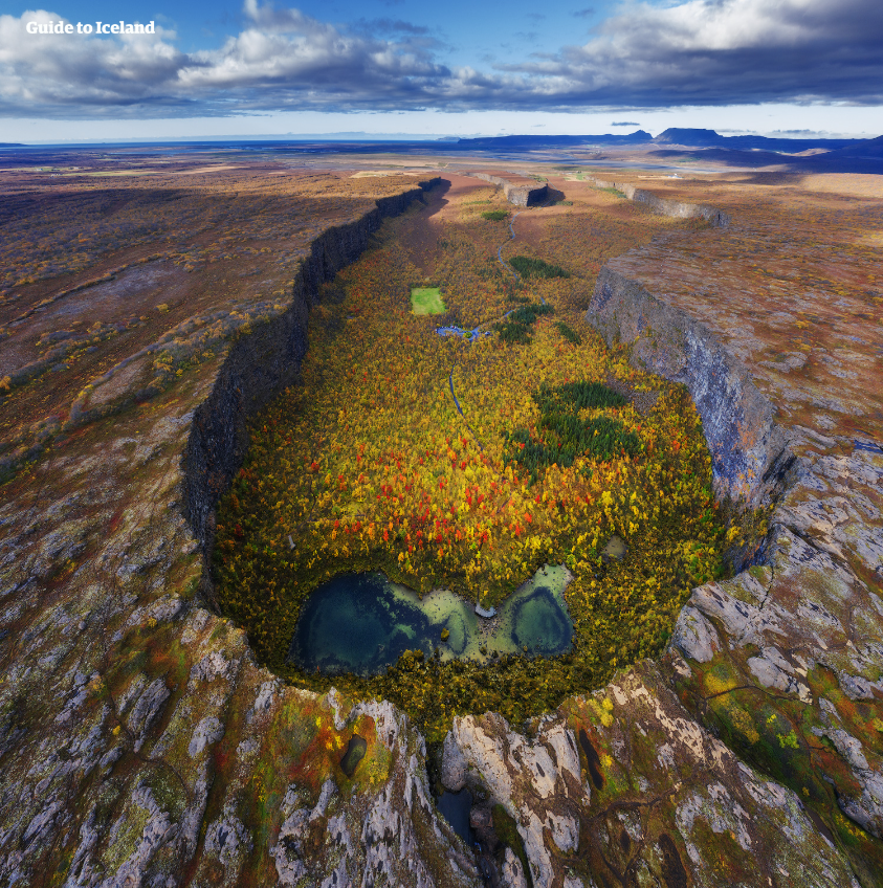
Asbyrgi canyon is a remarkable geological formation and a popular destination for nature enthusiasts. It's part of the Diamond Circle route, and while a lot of people stop here when traveling around the north, most only go to see the Botnstjorn pond at the edge of the canyon. Fewer people actually take the time to fully explore the area and this is why it deserves a place on this list!
This horseshoe-shaped canyon is part of the Vatnajokull National Park and spans approximately 2.2 miles (3.5 kilometers) in length and over 0.6 miles (1 kilometer) in width. It has incredible hiking paths along the edge of the canyon, onto the "island" in the middle, and all the way to the nearby Jokulsa a Fjollum glacial river.
You can even walk all the way to the Dettifoss waterfall, another iconic stop on Diamond Circle tours, though the 19.8-mile long path (32 kilometers) is quite an undertaking and will take more than a day to complete.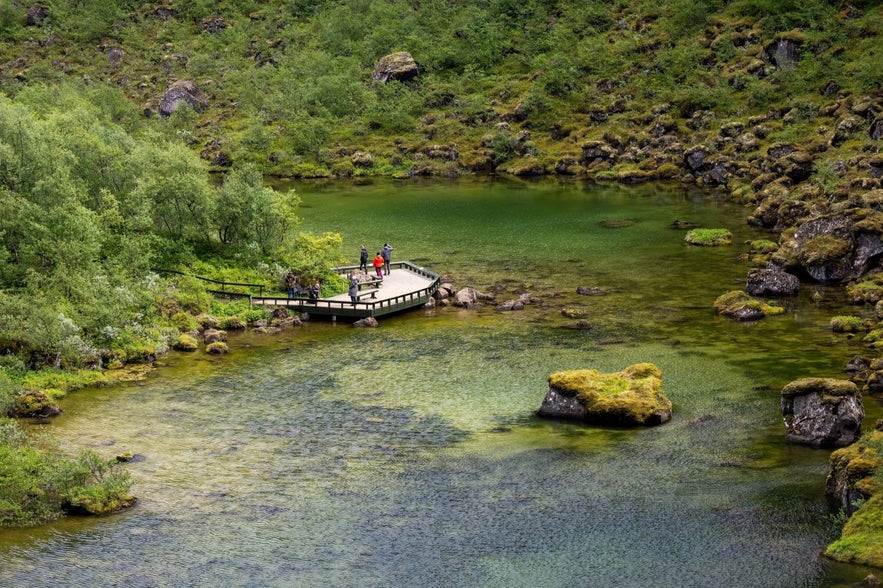
Most visitors to Asbyrgi only go to the Botnstjorn pond and miss out on the incredible hikes in the area.
According to legend, the canyon was formed by the hoofprint of Sleipnir, Odin's eight-legged horse from Norse mythology. In reality, it's believed to have been carved by an immense glacial flood thousands of years ago.
The canyon's towering cliffs, reaching heights of up to 328 feet (100 meters), are covered with lush vegetation on top, creating a striking contrast against the surrounding landscape. The area is home to diverse plant and bird species, making it an excellent spot for hiking and birdwatching.
- See more: The Ultimate Guide to Iceland's Diamond Circle
- Also, check out the Top 11 Amazing Canyons in Iceland
13. The Dark Fortress of the Dimmuborgir Lava Field
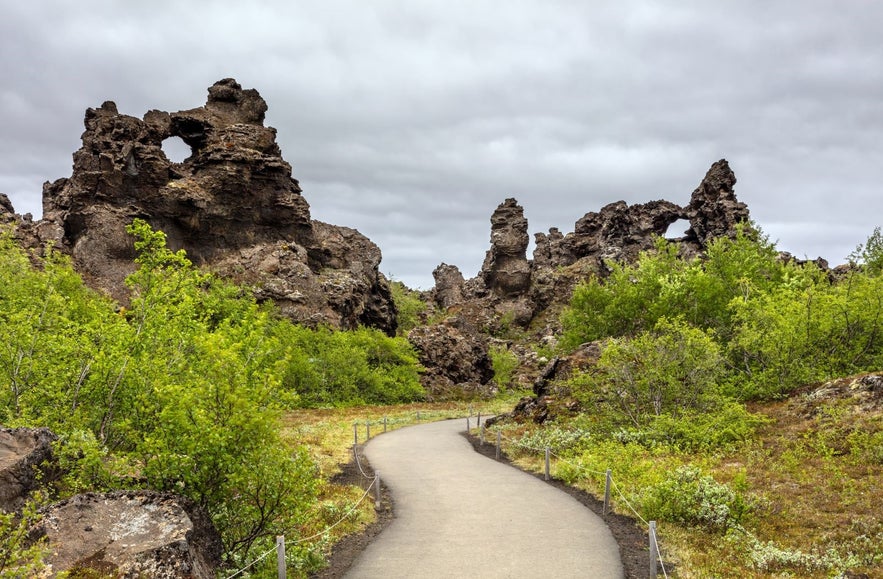
Along the edge of Lake Myvatn lies a vast lava field. This is there where you'll find Dimmuborgir, the site of incredible lava formations that were formed approximately 2,300 years ago during a volcanic eruption. The landscape features towering pillars, caves, and arches of solidified lava that could easily be from another planet!
There are several well-marked trails that wind through the formations, offering varying levels of difficulty and allowing for a close examination of the geological features. The more popular routes are paved, but most have gravel trails. The longer paths wind through the untouched nature, so it's best to bring good boots for these.
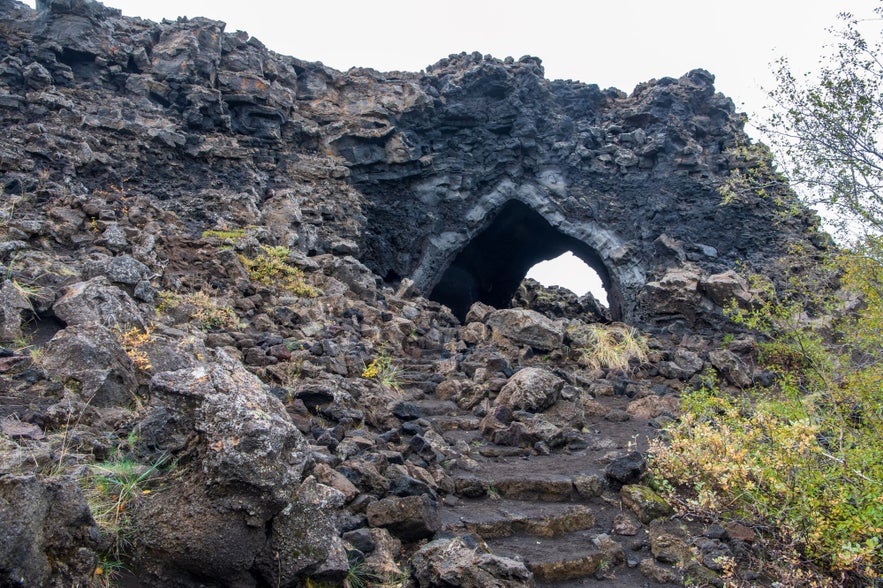
The "elf church" in the Dimmuborgir lava field is a wide cave.
Another reason Dimmuborgir is so special is the area's folklore, often associated with tales of trolls and elves. Most famously, it's said to be the home of the 13 Icelandic yule lads and their mother, Gryla! This story is celebrated every year, with special events at Dimmborgir around Christmas.
Dimmuborgir was also one of the many Icelandic filming locations for Game of Thrones, as it was used as Mance Rayder's wildling camp. The nearby Grjotagja, a lovely hot spring hidden inside a cave, is also the location of the Jon and Ygritte love scene. It's not accessible anymore as the water temperature has become dangerously hot.
- Check out: Dimmuborgir Lava Field & the Cave of the Yule Lads
- Learn more with the Ultimate Guide to Lake Myvatn
12. The Lively Vatnsnes Peninsula Coastline
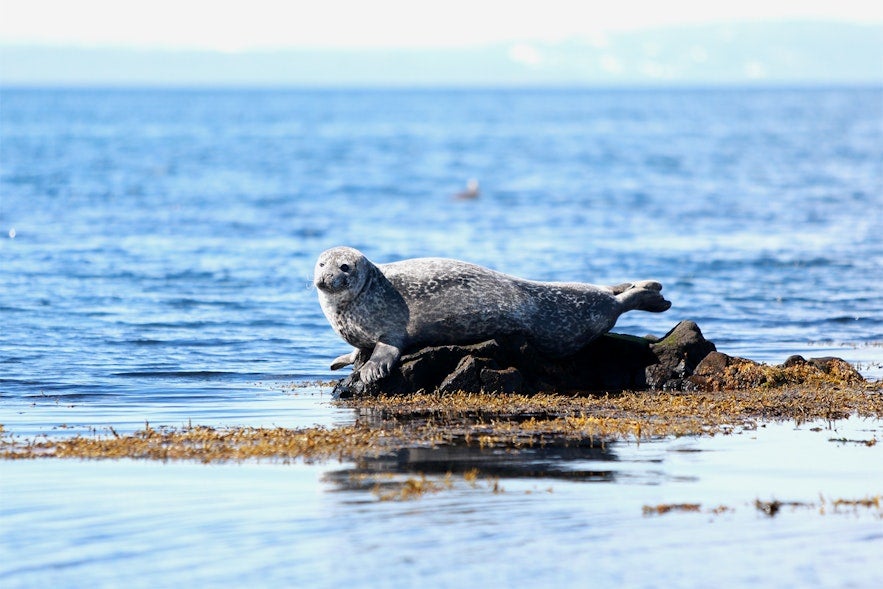
As you travel from Reykjavik to North Iceland, there is an area that is well worth adding to your drive. The Vatnsnes peninsula is an hour and a half's detour from the Ring Road, but it's well worth it for its fantastic seal-spotting opportunities.
Whale-watching tours have long been incredibly popular in Iceland, especially in the town of Husavik, further to the northeast, but seal-watching is underappreciated! These adorable marine mammals love sunbathing along the Vatnsnes coastline, lounging on the rocks, and splashing in the sea. It's the site of Iceland's largest seal colony, and usually, they are easy to observe from land.
If you decide to travel around the peninsula, you may also get the chance to spot puffins in the steep Vatnsnes cliffs. There are plenty of other seabirds in the area, so keep an eye out!
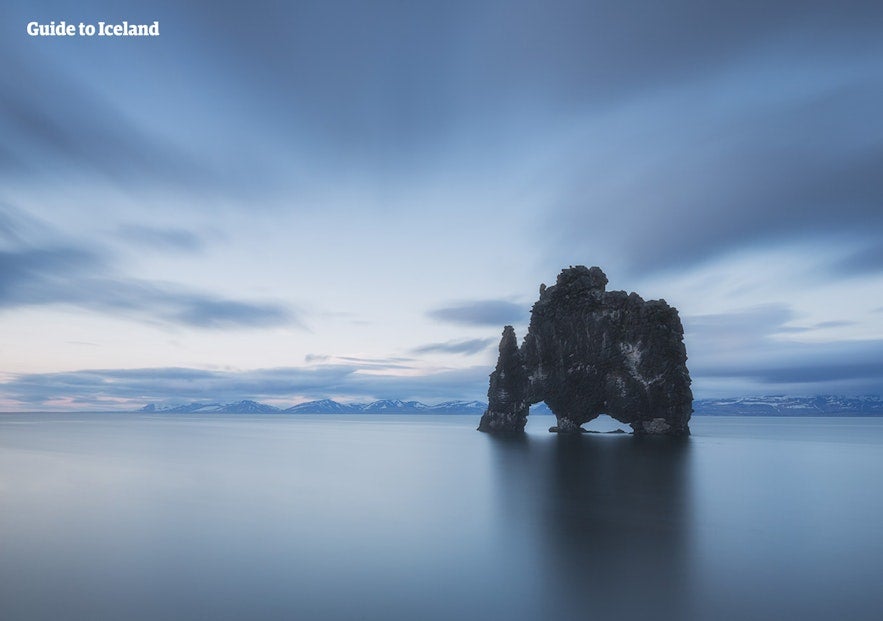 As you travel along the Vatnsnes peninsula, you'll also get a chance to stop by the Hvitserkur rock formation. Hvitserkur is known for its unique appearance resembling a dragon or dinosaur drinking from the sea, and local legend suggests that Hvitserkur was once a troll turned to stone by the rising sun!
As you travel along the Vatnsnes peninsula, you'll also get a chance to stop by the Hvitserkur rock formation. Hvitserkur is known for its unique appearance resembling a dragon or dinosaur drinking from the sea, and local legend suggests that Hvitserkur was once a troll turned to stone by the rising sun!
In reality, the Hvitserkur rock has simply been shaped by the rough ocean waves throughout the centuries. Its unique appearance has made it a popular spot for photographers and nature enthusiasts, so make sure to stop by.
- Learn more about Wildlife and Animals in Iceland: The Complete Guide
- See also: Seal Watching in Iceland and Whale Watching in Iceland
11. Forests Aplenty in Fnjoskadalur Valley
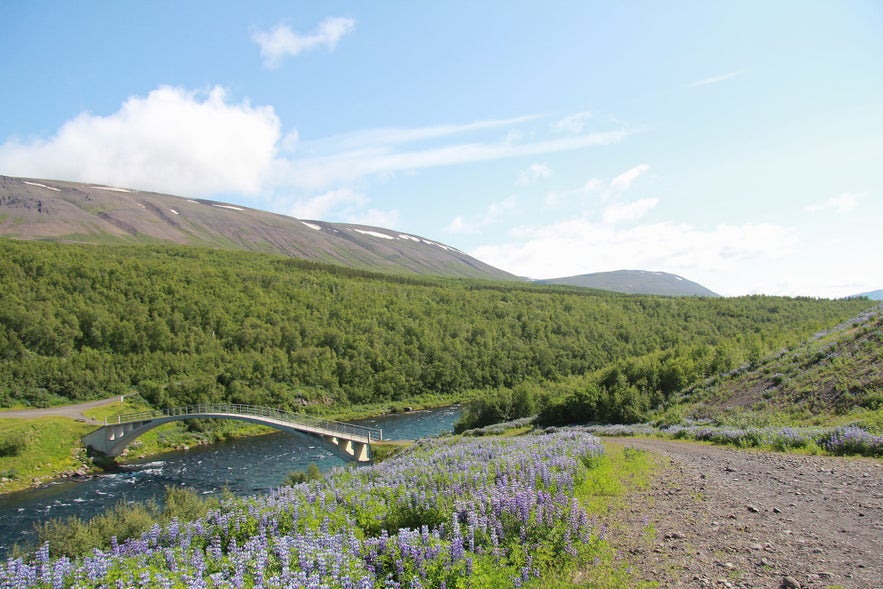
Photo from Creative Commons, Wikimedia, by Skogarpesi.
Fnjoskadalur is a peaceful narrow valley, sheltered from the winds and split by the river Fnjoska. It's around a 15-20-minute drive from Akureyri, which is commonly called the "Capital of North Iceland." The valley is dotted with charming farms and summerhouses, and it's the location of Vaglaskogur forest, one of the most popular camping areas in the country.
Vaglaskogur is a lovely birch forest that features plenty of hiking paths of different lengths. If you're planning to rent a motorhome or campervan, it's a great place to enjoy nature while staying close to Akureyri.
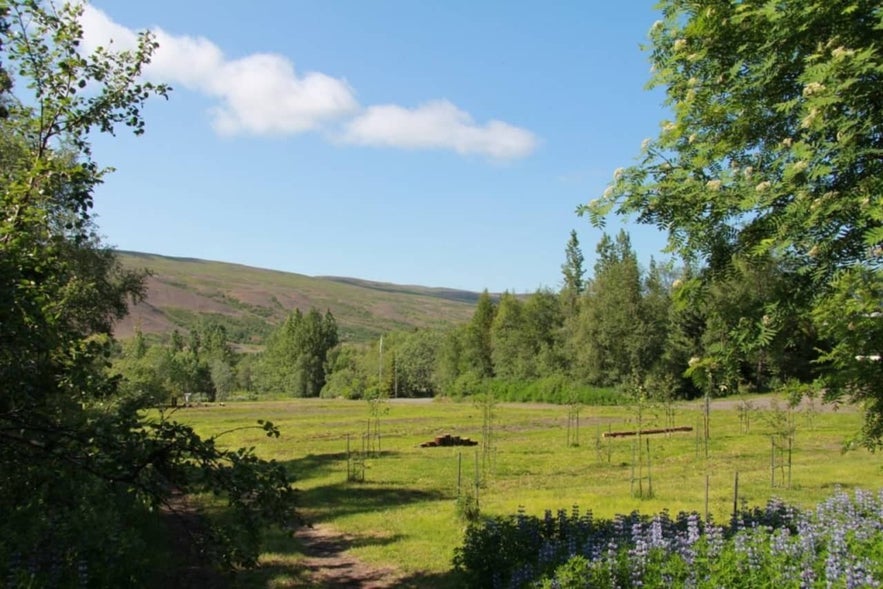
Photo taken from Visit North Iceland. The campsite of Vaglaskogur is very lush.
If you have the time, make sure to stop by the Daladyrd Farm Zoo. It's a farm in Fnjoskadalur valley where you can see goats, pigs, rabbits, hens, horses, and more! The animals are well treated and love attention from visitors. You can also use the opportunity for an afternoon treat at the farm café or pick up a handmade souvenir.
- Learn about the Best Farms You Can Visit in Iceland
10. Home is Where the Farm Is: Laufas
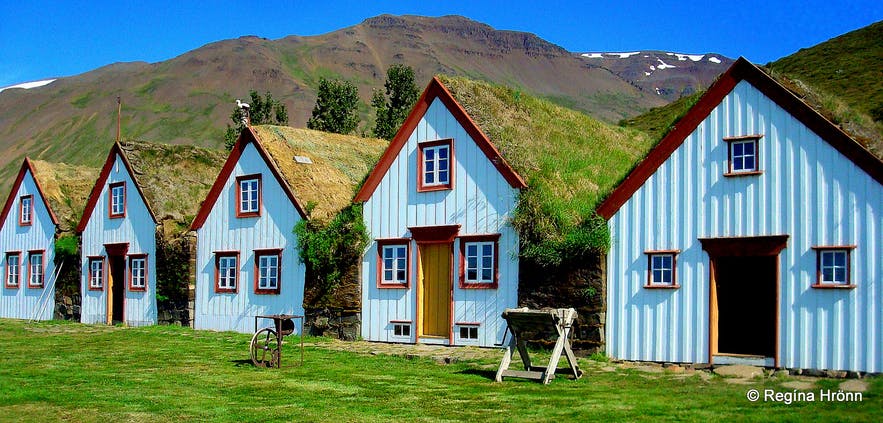 Photo by Regína Hrönn Ragnarsdóttir
Photo by Regína Hrönn Ragnarsdóttir
Laufas is a historic turf farm that's just a 25-minute drive from Akureyri. The current buildings date back to the late 19th century, though the history of the farm traces back to the time of settlement around the year 870.
This old turf farm is a museum offering a glimpse into traditional Icelandic architecture and rural life. In the 19th century, Laufas was the residence of a wealthy priest and his family, reflecting the architectural style and upper-class living conditions of their time. Inside, the house is furnished with period-appropriate artifacts, giving visitors insight into the daily lives of its former inhabitants.
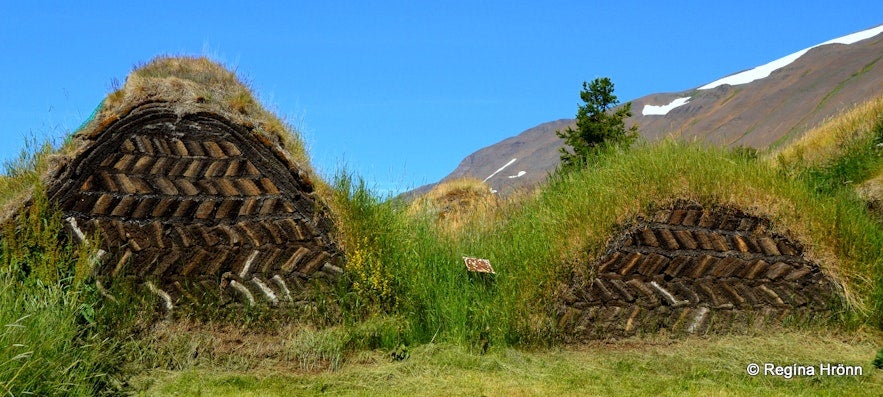
Photo by Regína Hrönn Ragnarsdóttir
Visiting Laufas is a must for those interested in Iceland's history. It's an example of a building technique that involves layering turf over a wooden frame, which provides insulation against the harsh Icelandic weather. There is also a beautiful church on the site, which was built in 1869.
- Learn more: The Best Museums in Iceland
- Also, check out the Ultimate Guide to Turf Houses in Iceland
9. Hrisey Island is for Reflection
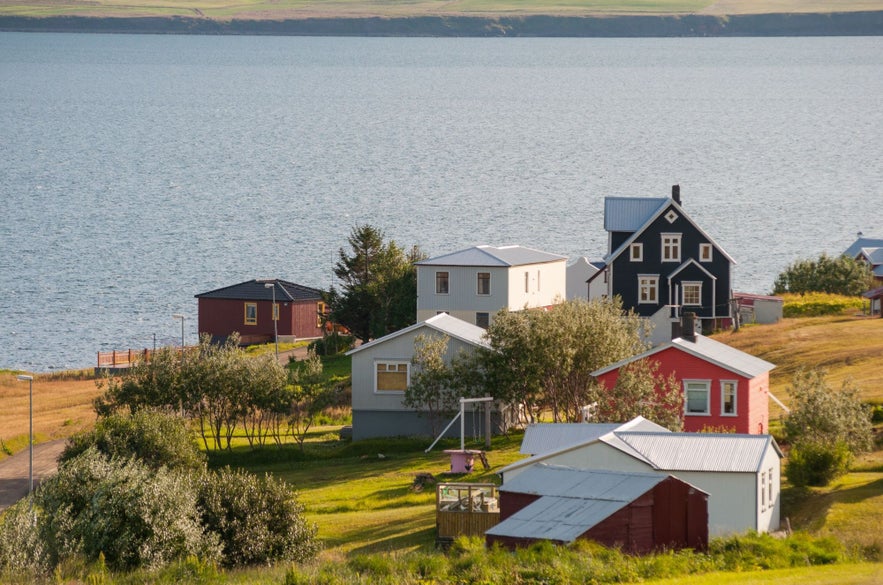 The island of Hrisey is sometimes called the "Pearl of Eyjafjordur" and is often spoken about with a sense of awe. It's located in the same fjord as Akureyri and easily reachable by a 15-minute ferry ride from Arskogarsandur.
The island of Hrisey is sometimes called the "Pearl of Eyjafjordur" and is often spoken about with a sense of awe. It's located in the same fjord as Akureyri and easily reachable by a 15-minute ferry ride from Arskogarsandur.
Hrisey is the second largest island off Iceland's coast, just after Heimaey in the Westman Islands, and has a population of 164 as of 2024. The island's charming town features many old houses, a geothermal swimming pool, and an interesting museum dedicated to the history of shark fishing in Iceland. It's located in the oldest house in Hrisey, the home of Shark-Jörundur or "Hákarla Jörundur," a famous 19th-century shark fisherman.
While you should definitely take the time to explore the town, the main draw of Hrisey is the island's nature. The island is framed by the beautiful Eyjafjordur mountains and the serene sea, with plenty of different hiking routes to explore. As all bird hunting and egg-taking are forbidden on Hrisey, and there are no natural predators, bird life has truly thrived.
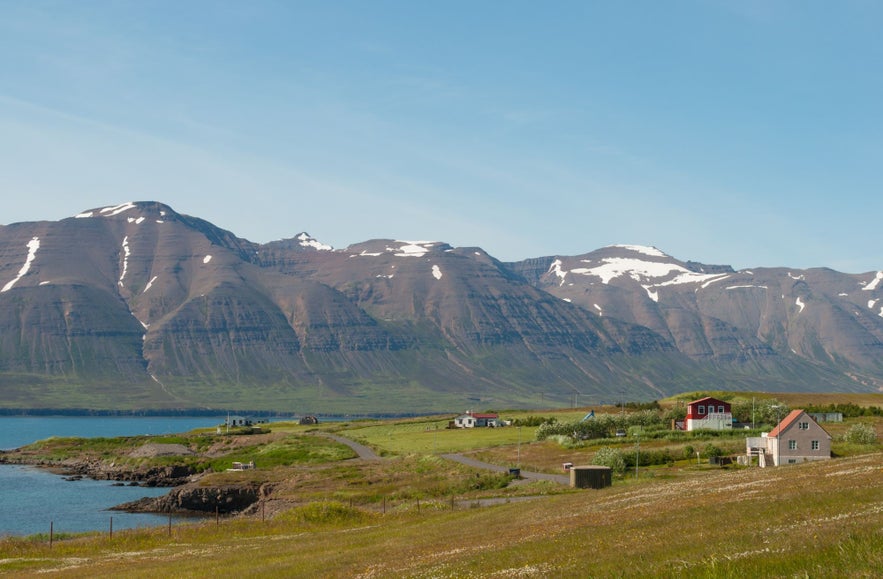 There are over 40 different bird species on Hrisey, some rarer than others, but this makes it a fantastic place for birdwatching and enjoying nature. It was even one of the largest arctic tern nesting sites in Europe for a time!
There are over 40 different bird species on Hrisey, some rarer than others, but this makes it a fantastic place for birdwatching and enjoying nature. It was even one of the largest arctic tern nesting sites in Europe for a time!
There is a birdwatching house by the picturesque Lambhagatjorn pond on Hrisey that's perfect for observing the birds tweeting and fleeting about in the oceanic breeze. With multiple ferry departures per day, Hrisey really is a lovely, calm getaway that will make for a memorable addition to your Iceland itinerary.
- Learn more about Birds in Iceland
8. The Arctic Circle on Grimsey Island
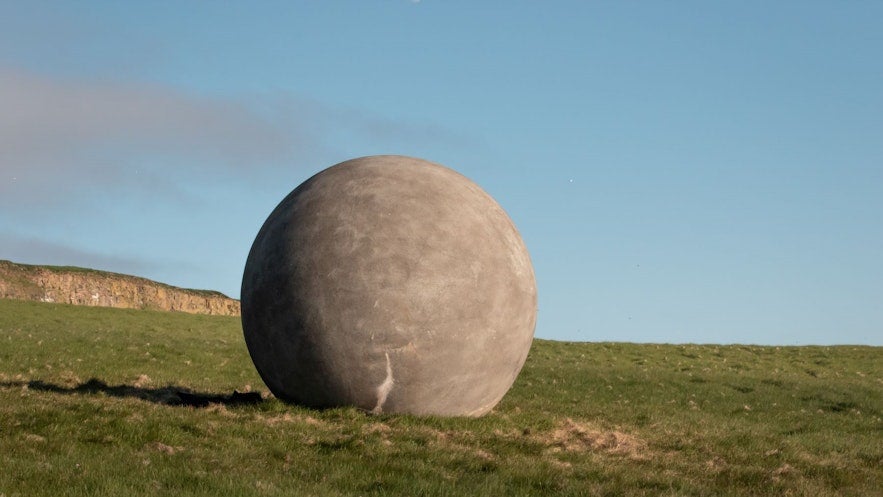 There's only one location in Iceland that reaches the Arctic Circle, and that is the island of Grimsey. This lovely island is reachable by a three-hour ferry from Dalvik and is the perfect place for a truly peaceful stay.
There's only one location in Iceland that reaches the Arctic Circle, and that is the island of Grimsey. This lovely island is reachable by a three-hour ferry from Dalvik and is the perfect place for a truly peaceful stay.
Grimsey is enveloped in what seems like endless darkness in the winter; in the summer, the sun stretches for days. While we know the science behind this, it's nevertheless spellbinding when the midnight sun dances on your skin at three in the morning!
There are interesting hiking paths around Grimsey, especially to the Orbis et Globus or "Circle and Sphere" sculpture. It takes about an hour and a half to reach it from the town, and it's best-done when staying overnight. Otherwise, you won't have much time to complete the hike between the arrival and departure of the ferry.
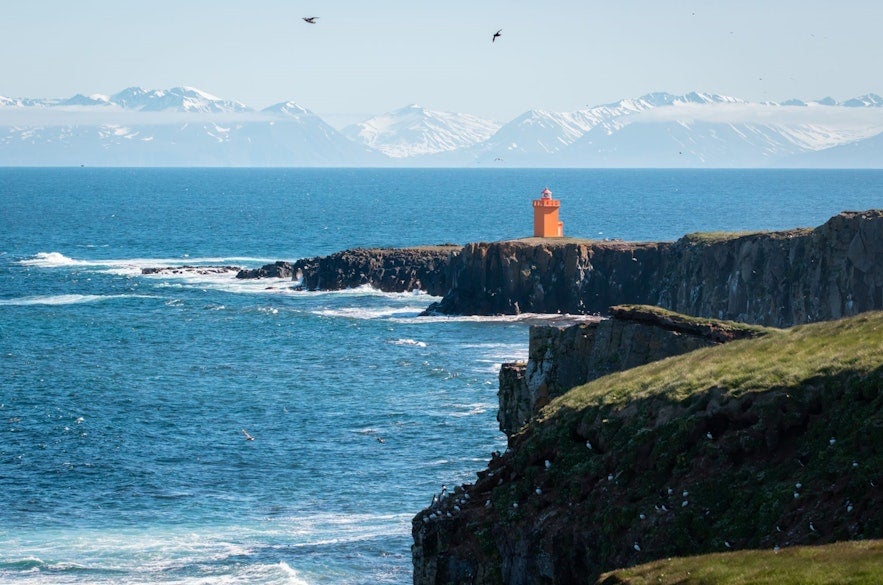
The artwork represents the movement of the Arctic Circle and is moved every year to mark its changing location. You can also see the circle's movement with special markings, which represent its location in 1717, 1817, and 1917.
Depending on the time of your visit, you may also spot puffins in Grimsey, as there's plenty of vibrant birdlife among the dramatic cliffs. There's also a chance of seeing whales off the shore! This is why it's worth it to spend a night here, as you'll want to enjoy nature and explore the charming town.
7. Bathe in Beer at Arskogssandur
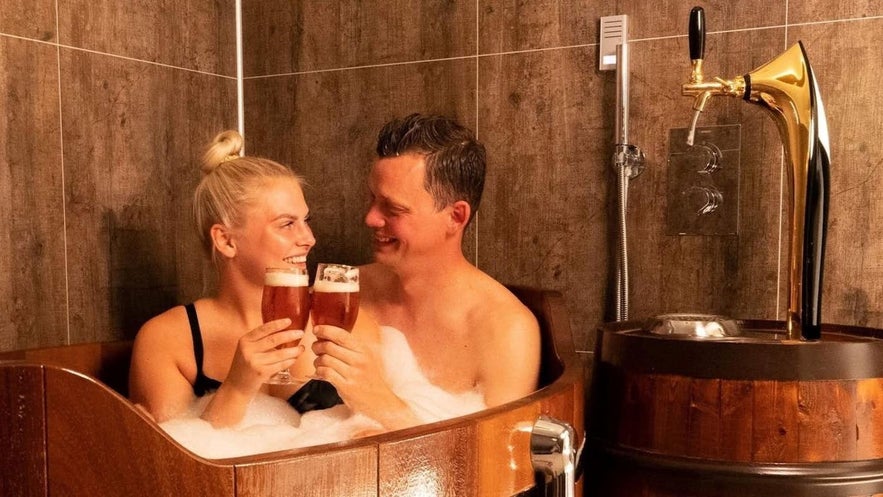 Photo from Unforgettable 1-Hour Bjorbodin Beer Spa Tour in North Iceland
Photo from Unforgettable 1-Hour Bjorbodin Beer Spa Tour in North Iceland
If you're a beer lover traveling around North Iceland, a dip in the Bjorborin beer baths is a pretty incredible experience. The year 2006 saw the opening of Iceland's first microbrewery: Kaldi Microbrewery, and in 2017, they took their project further by opening a beer bath spa!
These warm, frothy beer baths are perfect for the weary traveler and are said to be good for the skin. The tubs are made with smooth Kambala wood, and they're filled with beer, water, yeast, and hops. During your soak, you can enjoy a cold beer on tap!
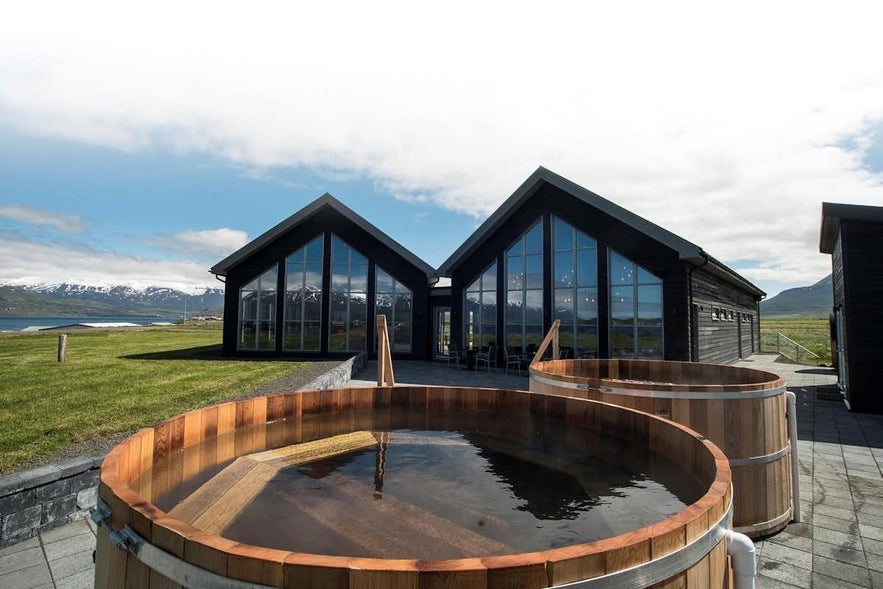
Photo from Unforgettable 1-Hour Bjorbodin Beer Spa Tour in North Iceland
There are also outdoor tubs, which sit in clear view of Eyjafjordur fjord and the high surrounding mountains, which is a clear invitation for a cold celebration drink or two. If you don't want to worry about a designated driver, you can book accommodation in Arskogasandur and even stay in Hotel Kaldi, just next to the spa! If you can't make it up north, you can also try out Kaldi Bar in downtown Reykjavik for some northern beers... You just can't bathe in them!
- Discover the Best Breweries and Distilleries to Visit in Iceland
- Don't miss out on the Top 12 Restaurants in North Iceland
6. The Incredible Coastline of Kalfshamarsvik
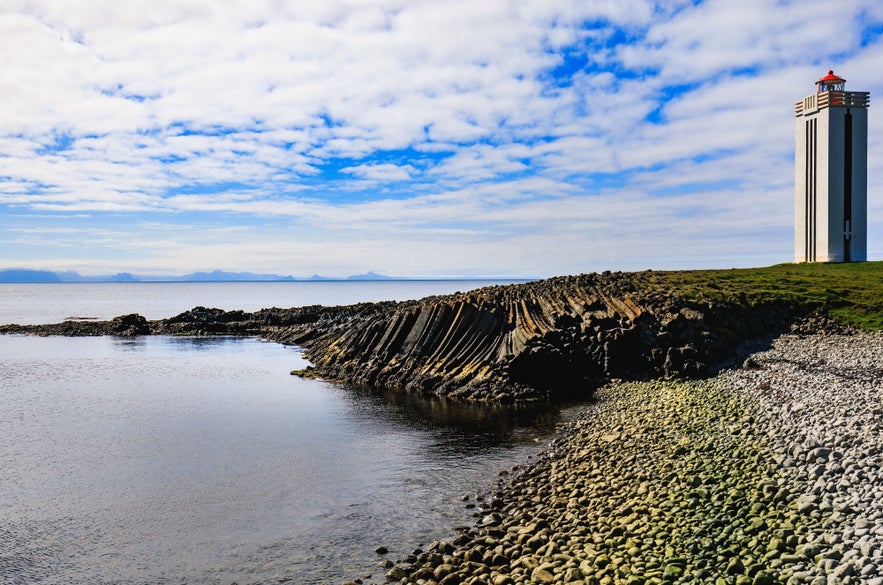 Iceland is famous for its volcanic activity, with regular eruptions having shaped the landscapes for thousands of years. One of the more unique natural features caused by this activity is basalt columns, which are formed when rapidly cooling lava contracts and fractures into geometric shapes, creating striking hexagonal pillars. These can be found all around Iceland, but one of the more hidden locations to see them is at Kalfshamarsvik bay in North Iceland.
Iceland is famous for its volcanic activity, with regular eruptions having shaped the landscapes for thousands of years. One of the more unique natural features caused by this activity is basalt columns, which are formed when rapidly cooling lava contracts and fractures into geometric shapes, creating striking hexagonal pillars. These can be found all around Iceland, but one of the more hidden locations to see them is at Kalfshamarsvik bay in North Iceland.
You'll find Kalfshamarsvik along the Skagi peninsula, which is an easy detour from the Ring Road. This bay features incredible basalt columns which "flow" in different directions. Some are even curved and horizontal!
- Learn all about Basalt Columns of Iceland - Hexagonal Rocks of Wonder
- Also, check out: Volcanic Eruptions in Iceland: A History of Fire
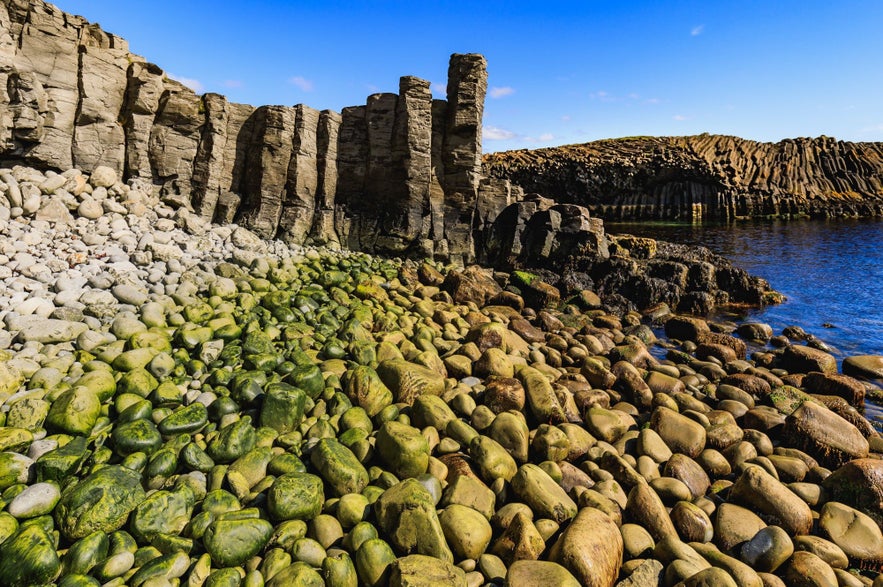
These natural sculptures rise dramatically from the sea and form a lovely contrast with the Kalfshamarsviti lighthouse. The rocky shore is also sometimes stained by seaweed, creating a green and yellow stripe along the coast. It's a fantastic place for photographs, and you likely won't meet a lot of travelers when visiting, providing a peaceful experience.
5. The Sound of the Land at the Troll Peninsula
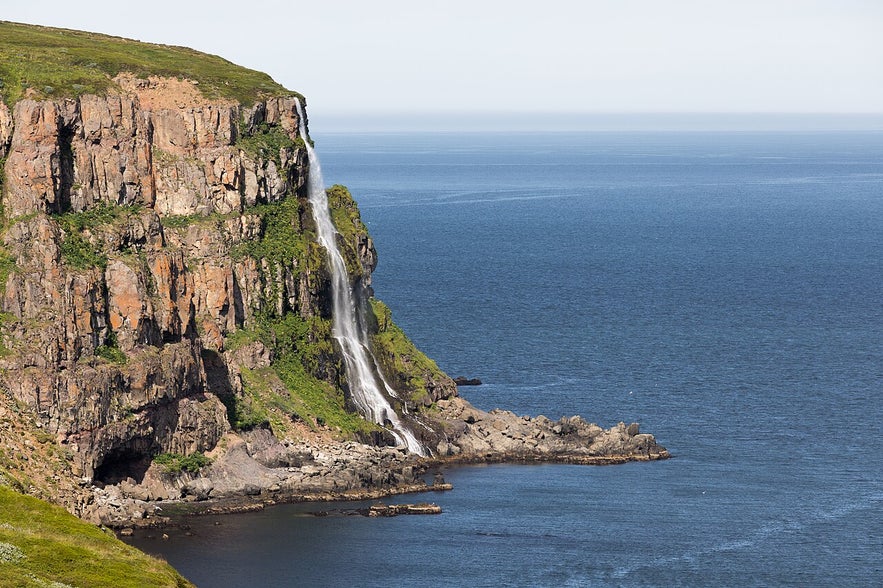
Photo from Creative Commons, Wikimedia, by Markus Trienke.
Trollaskagi, or "the Troll Peninsula," is not far from Akureyri but conjures the eerie quiet beauty of a place much more remote. As you travel along its coast, with some of the tallest mountains outside the Icelandic highlands on your side, you'll be greeted by some beautiful scenes.
This bit of land is really a maze of grand valleys, fjords, lakes, and peaks deeply carved by centuries of wind and water. Along the way, you'll pass through the charming towns of Siglufjordur and Olafsfjordur which are worth taking the time to explore.
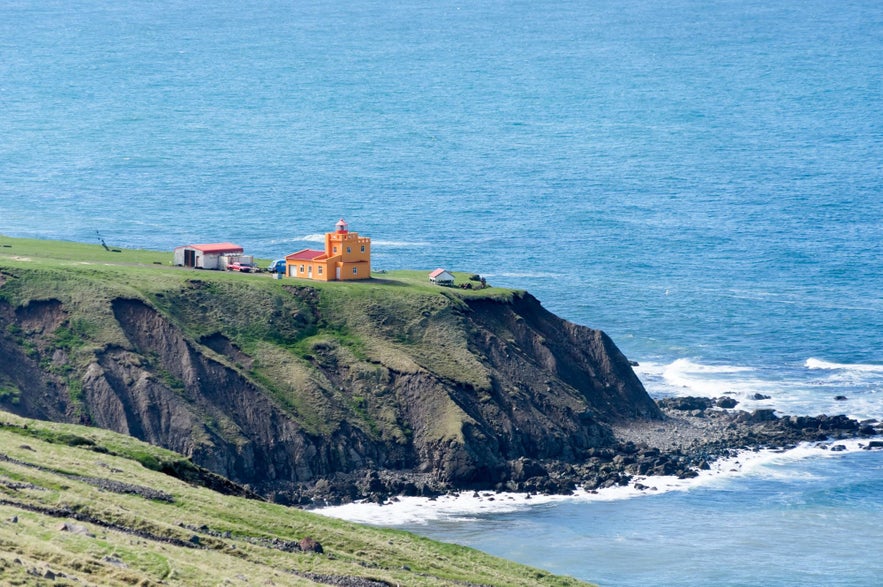
Take the time to stop by the iconic orange Saudanesviti lighthouse, which makes for lovely photographs. Also, don't miss out on the Migandifoss waterfall along the road. It can be tricky to see the viewpoint for it!
During your drive, you'll also get to experience the two Trollaskagi tunnels, Mulagong and Strakagong, which have only one lane. It's a stressful drive but a pretty cool experience, and there are areas along the tunnel where you can let other cars pass!
4. The Herring Era Museum in Siglufjordur
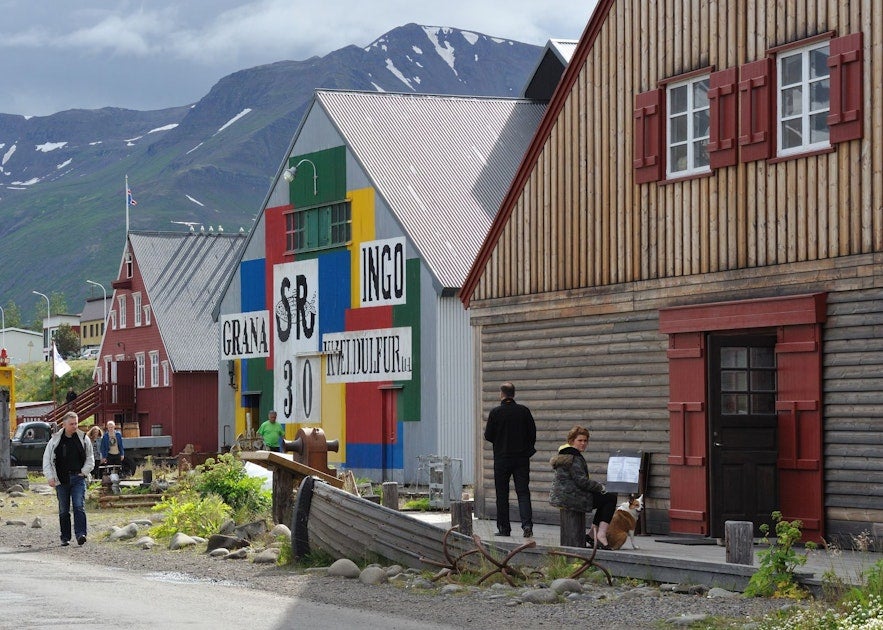
The small town of Siglufjordur is a charming stop along the Trollaskagi peninsula and just happens to be home to one of the best seafaring museums in Iceland! Specifically, this Siglufjordur museum is dedicated to the history of herring fishing, which once dominated the economy and culture of the town and most of Iceland as a whole.
Siglufjordur was the epicenter of the "herring adventure" or "síldarævintýrið." This period lasted from the early 20th century until the 1960s, when herring fishing and processing fueled economic growth and prosperity in Iceland.
While the herring is now long gone because of overfishing, the Herring Era Museum showcases the spirit of those exciting times when the place crackled with dreams of vast wealth. It houses the most significant maritime collection in Iceland and has been awarded the European Museum Award.
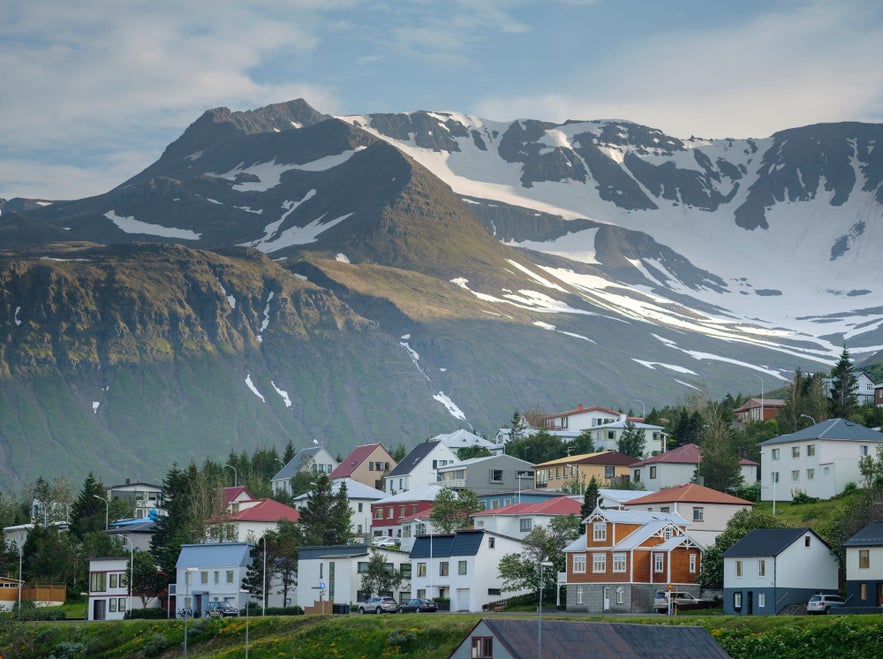
The town of Siglufjordur is framed by towering mountains.
The museum has five exhibitions spread across several buildings; each restored to showcase the atmosphere of the herring industry at its peak. These include a huge boathouse, a salting station, and a herring reduction factory. Here, you can feel how vital the seas were to the survival and independence of Icelanders, and it really gives a new perspective to the small fishing villages that line the country's coastline.
It's well worth it to spend a day or two in Siglufjordur and enjoy the quiet atmosphere. There are also plenty of accommodations in Siglufjordur making it easy to include it in your itinerary.
- Siglufjordur has some of the Best Restaurants in North Iceland
3. The Hobbit-Like Homes of Glaumbaer Turf Farm
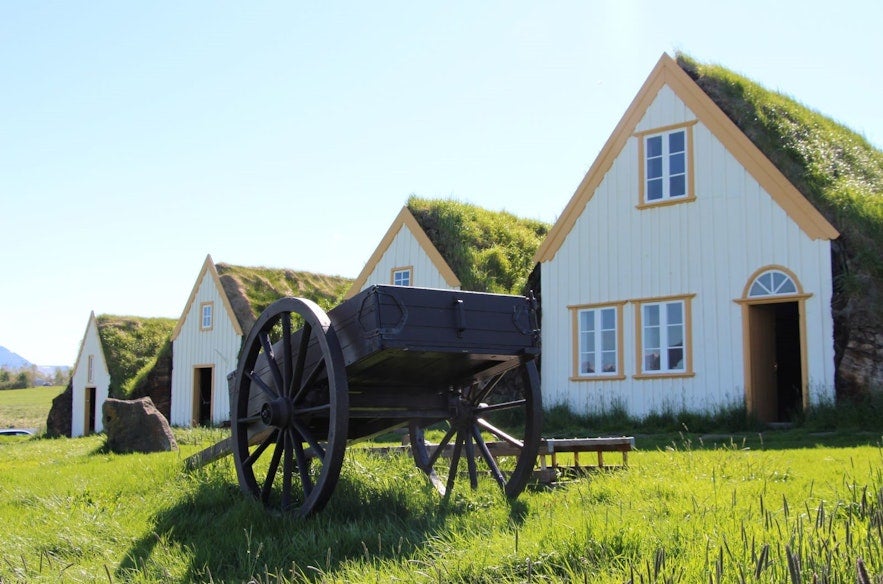
The fjord of Skagafjordur has seen some of the most significant events in Iceland's early history, such as the battle of Orlyggstadir in 1238. It's also where you'll find Glaumbaer, one of the best-preserved turf farms in Iceland, and a great location for anyone interested in learning about Iceland's culture.
The first farm at Glaumbaer was built in the 11th century by Snorri Þorfinnson, who's known as the first European child born in North America. He was the son of Guðríður Þorbjarnardóttir, an explorer considered the most traveled woman of her era. Statues commemorating Guðríður are located outside the Glaumbaer church and near her childhood home on the Snaefellsnes peninsula.
Ownership of Glaumbaer shifted to the church in the 16th century, serving as a pastor's residence. The buildings that currently stand on the farm were built in 1879 and renovated in the early 1940s when the last inhabitants moved out, and it was designated a conservation site.
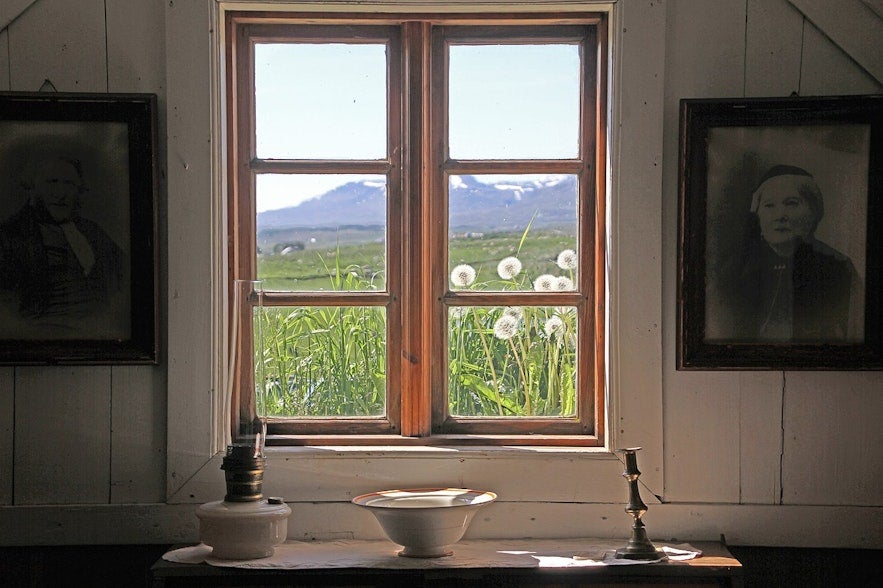
Photo from Wikimedia, Creative Commons, by Gerd Eichmann.
The building style of Glaumbaer is typical for traditional Icelandic turf houses, though it was very large for its time. It's constructed from turf and rocks with a supportive wooden frame and paneling.
Once you've explored the turf houses, you can visit Ashus and Gilsstofa, two late 19th-century timber houses relocated to the Glaumbaer museum in the 1990s. They currently accommodate museum exhibitions and a café.
We highly recommend taking time to enjoy a coffee and pastry, or even a full lunch, at the Glaumbaer café. Sitting at one of the small, intimate tables in the 19th-century house, one fully expects an Icelandic grandmother to come out with a plate of Icelandic doughnuts and a greeting!
2. The Ernan Shipwreck at Borgarsandur Beach
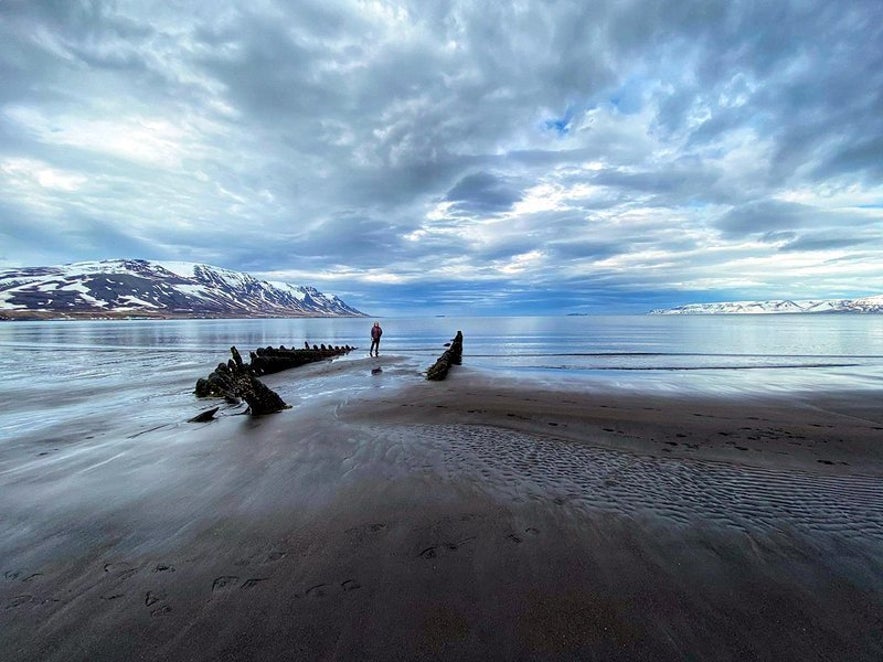
Photo by Svala Guðmundsdóttir, taken from Feykir.
If you're looking for a truly hidden location in Iceland, then check out the Ernan shipwreck. It's located on Borgarsandur, a black sand beach near the town of Saudarkrokur, and it's one of those places that's only really known by locals. It's a popular spot among photographers from the area.
Ernan was a prosperous fishing ship that was originally built in 1916. Notably, it was used for transporting fish to England during the Second World War, and an old story tells that the Germans did not want to waste ammunition to blow it up as the ship was so ugly!
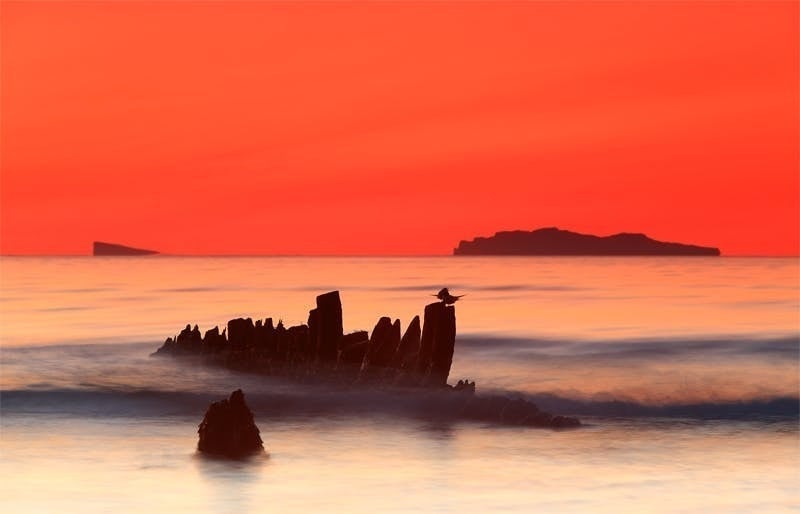
In the 1960s, Ernan's seafaring story came to an end, and the plan was to dispose of the ship by burning it. It was drawn from the Saudarkrokur harbor, but it was stranded on the Borgarsandur beach. It was then coated in oil and lit on fire, but the dense wood of the ship refused to burn, leaving most of it behind to be broken down by the elements.
The Ernan shipwreck still lies along the Borgarsandur sands and is only visible during low tide. It can make for a very interesting photography location, with the sunset or midnight sun in the background. You may even be able to capture the northern lights if you're planning winter self-drive tours!
1. The Kolugljufur Canyon
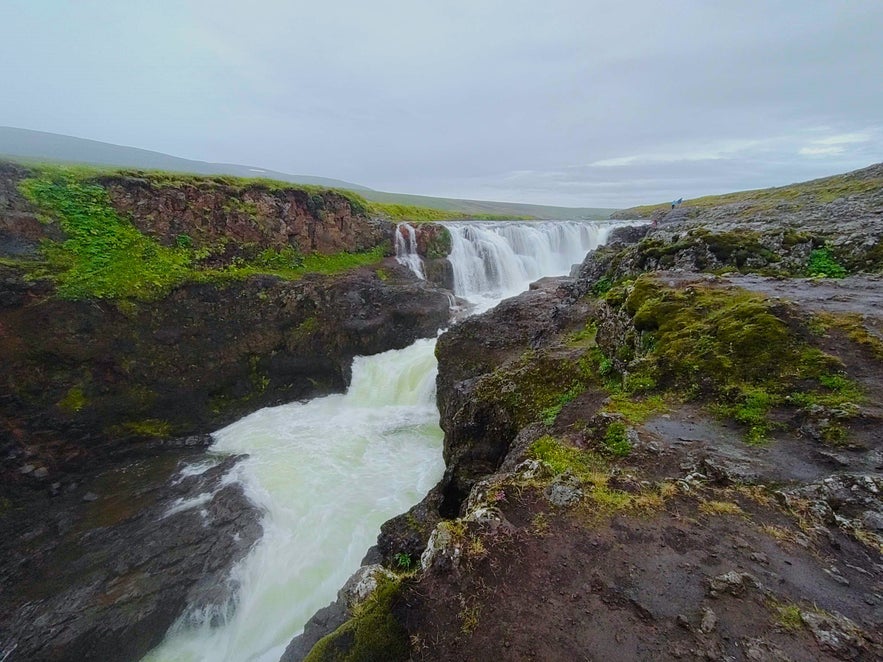
It's simply strange that the Kolugljufur canyon doesn't get more attention! It's one of those overlooked spots in North Iceland that features incredible beauty, and not many travelers know about it. It's also very easy to visit!
The Kolagljufur canyon is located in the quiet valley of Vididalur, and through it runs the Vididalsa river. It features the dramatic Kolufossar waterfalls, which have shaped nature over thousands of years. To make the area even more interesting, their name also comes from an old folktale of a troll who lived in the canyon.
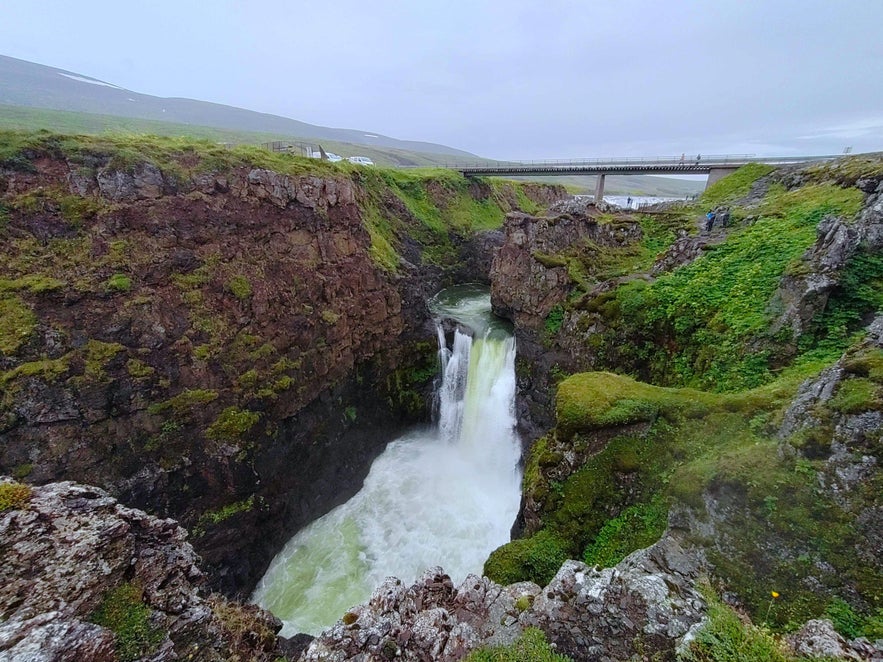 Legend has it that a salmon-loving troll called Kola made a home here, hence the name Kolugljufur and Kolufossar. The names quite literally mean "Kola's canyon" and "Kola's waterfalls!" In the dark of the night, she would sit on a ledge by the Vididalsa river and snatch fish with her hands. Sometimes, she would cook the fish in the nearby pothole, known as Koluketill or "Kola's cauldron," and sleep on her stony bed, a rock arch called Kolurum or "Kola's bed." It's not difficult to imagine why she would stay here; the canyon is really a stunning sight!
Legend has it that a salmon-loving troll called Kola made a home here, hence the name Kolugljufur and Kolufossar. The names quite literally mean "Kola's canyon" and "Kola's waterfalls!" In the dark of the night, she would sit on a ledge by the Vididalsa river and snatch fish with her hands. Sometimes, she would cook the fish in the nearby pothole, known as Koluketill or "Kola's cauldron," and sleep on her stony bed, a rock arch called Kolurum or "Kola's bed." It's not difficult to imagine why she would stay here; the canyon is really a stunning sight!
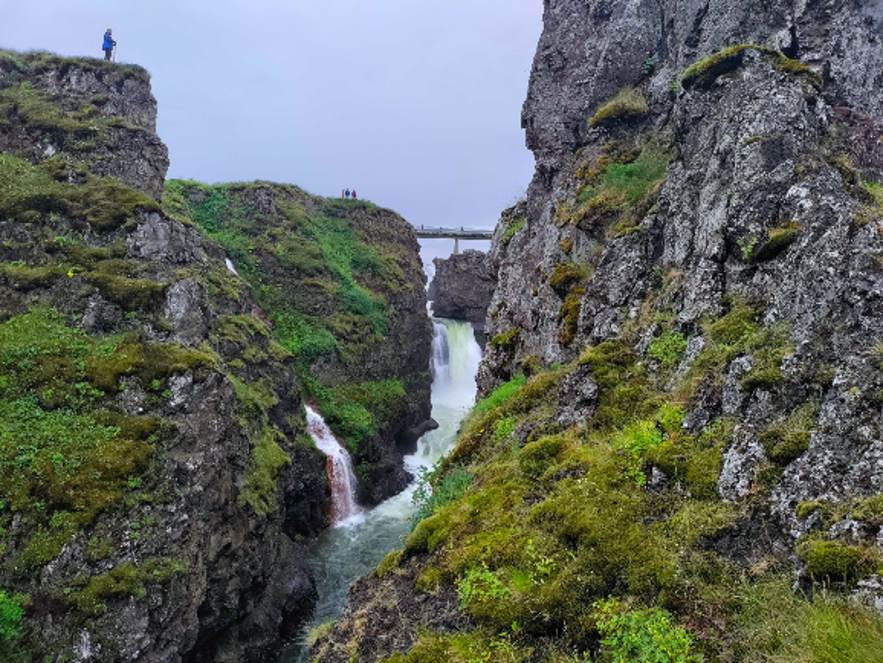
You can walk along the edge of Kolugljufur canyon or go down by the bridge for a better view of the waterfalls. The path can be a bit tricky to maneuver as it can be muddy in the rain, but it's well worth it. There is also an observation platform, but nature here is mostly untouched.
The Kolugljufur canyon is between the towns of Hvammstangi and Blondos, and you can reach it with an affordable rental car. You travel along a gravel road with one-lane bridges, but the path is in good condition. It's just a 10-minute detour from the Ring Road, so take the time to visit!
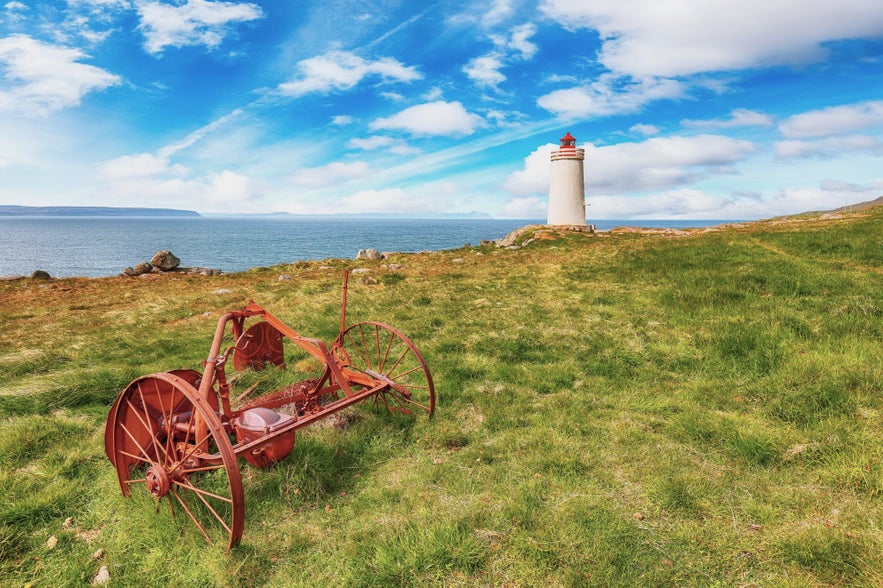 North Iceland has some incredible nature, culturally significant locations, and charming towns. It will take days to enjoy all that the region has to offer, especially when you want to include these hidden destinations in your itinerary!
North Iceland has some incredible nature, culturally significant locations, and charming towns. It will take days to enjoy all that the region has to offer, especially when you want to include these hidden destinations in your itinerary!
Head off the beaten path for a memorable trip and enjoy the serenity of Iceland, which is mostly found away from the main tourist spots. Plan a true adventure and enjoy a more intimate and authentic experience in Iceland.
Will you visit North Iceland in the coming months? Which of these locations would you visit? Have you traveled to Iceland before? Share your thoughts and experience in the comment section below!



